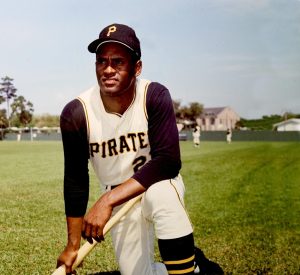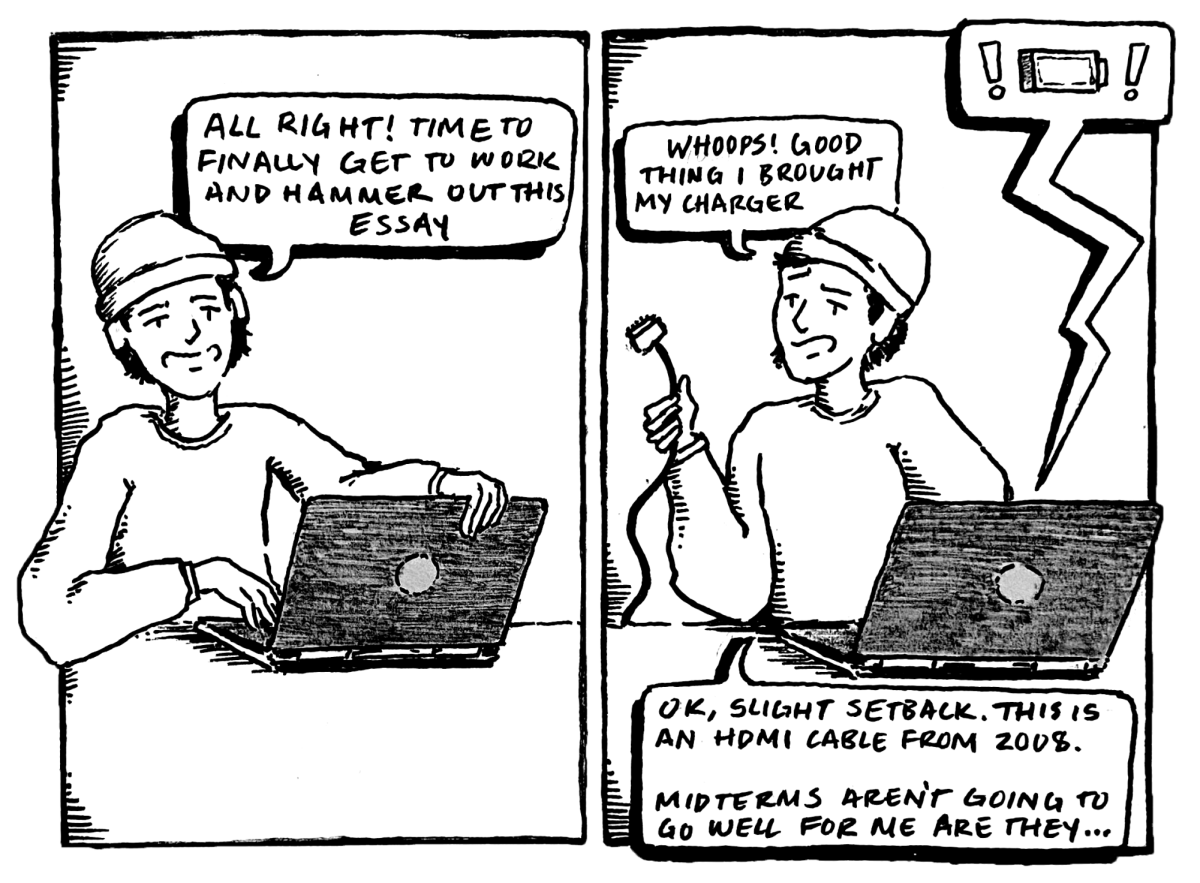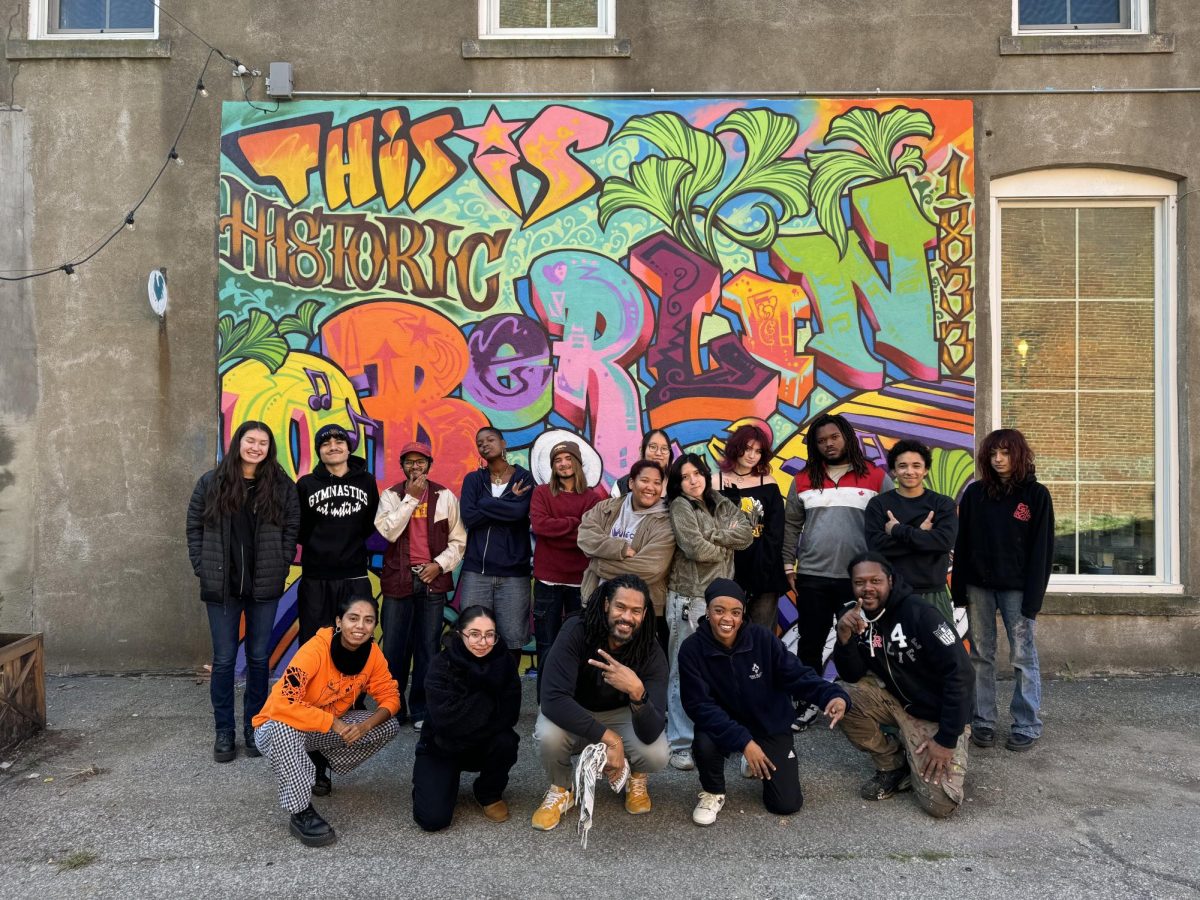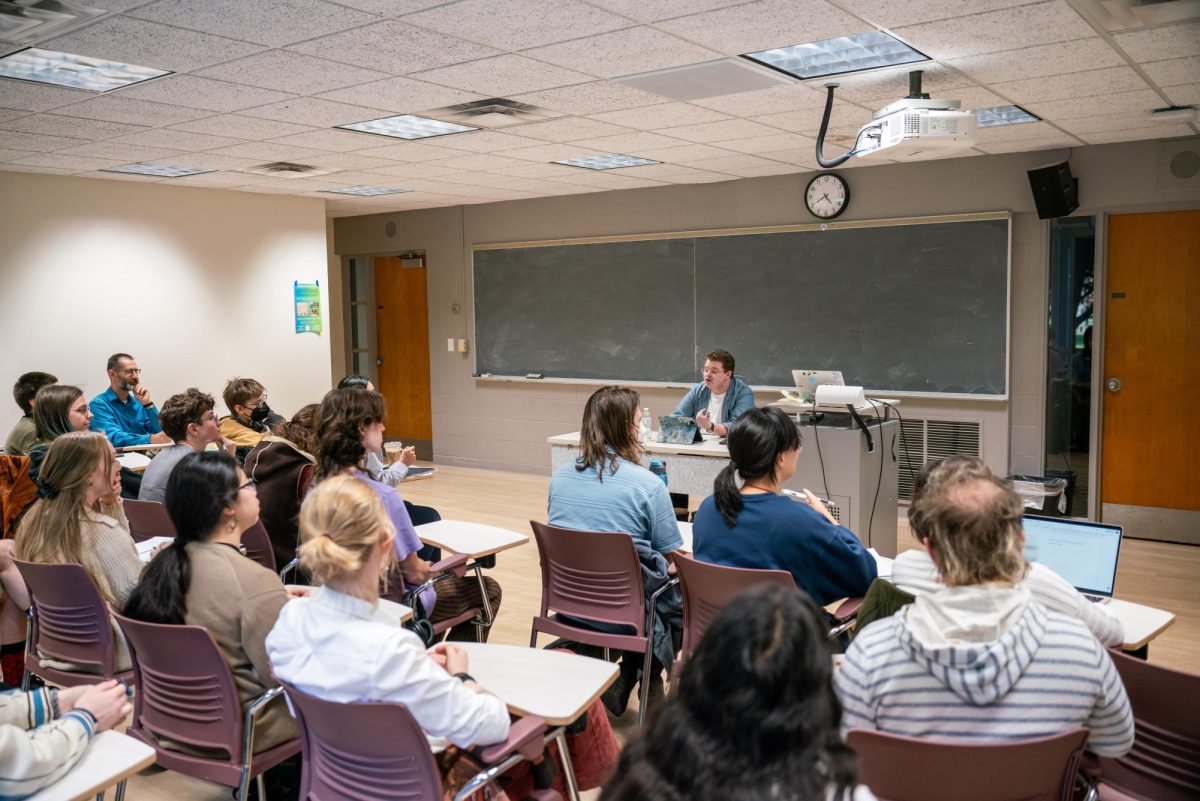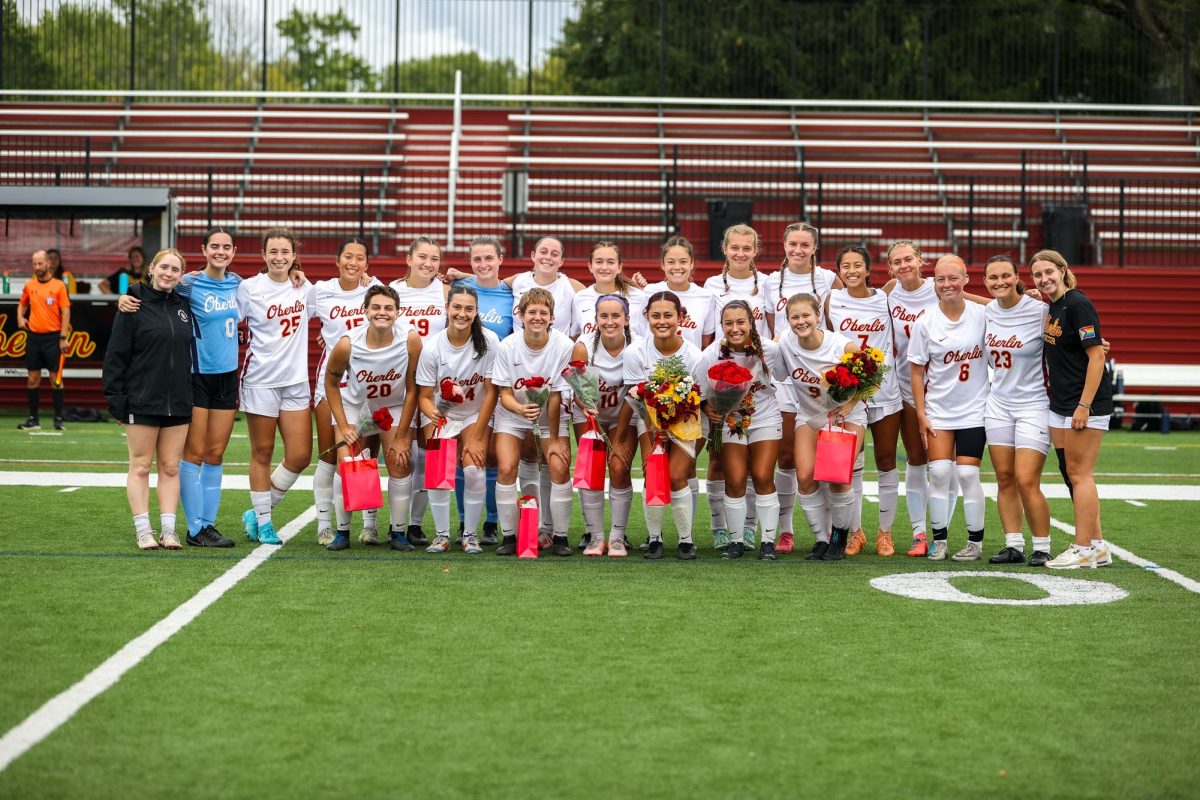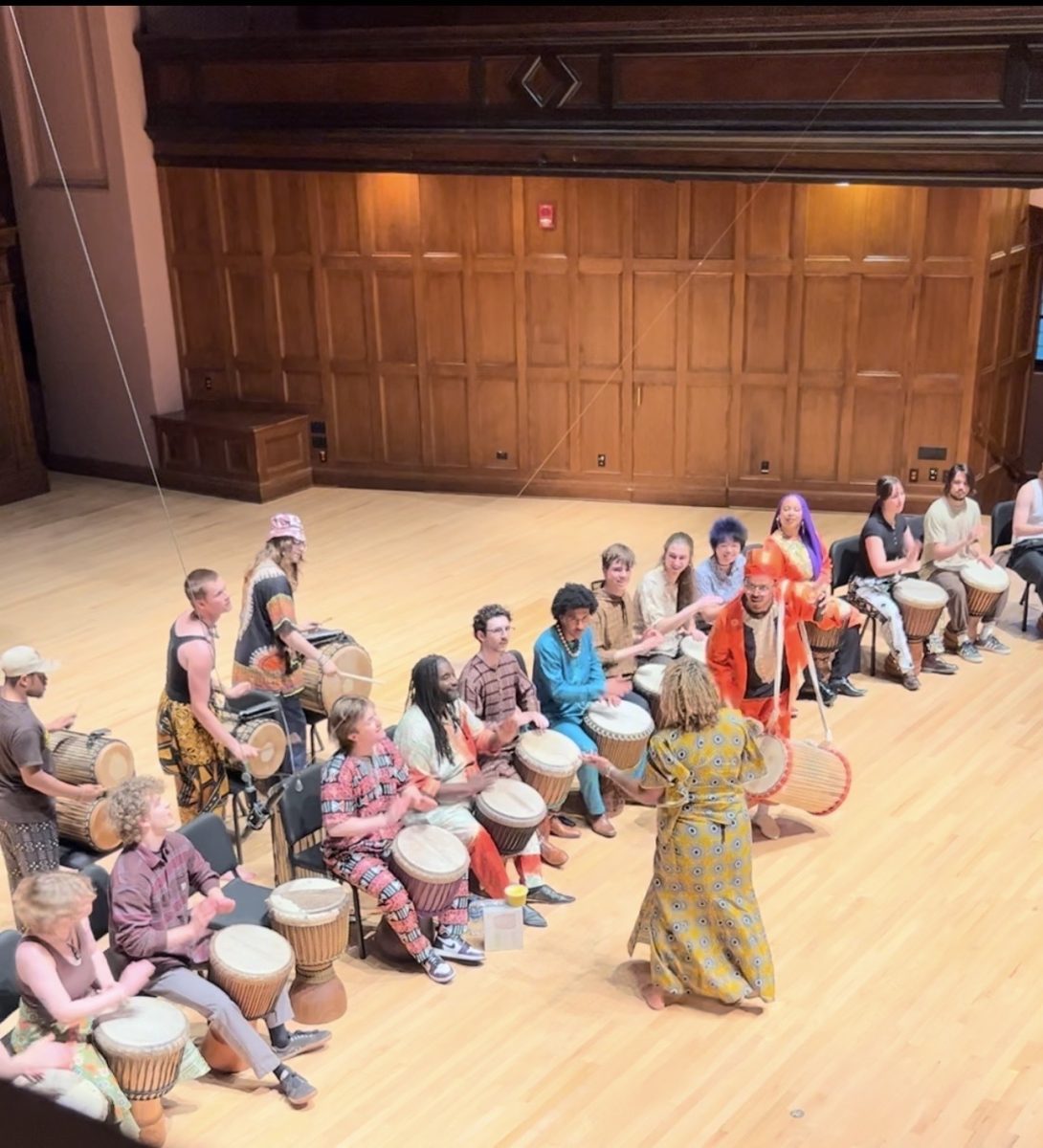IBF, OPAL Team Up for Cell Phone Free Day
November 30, 2013
The Oberlin Peace Activists League and the Oberlin chapter of the Ishmael Beah Foundation joined forces last Tuesday to raise awareness about conflict minerals in technology through a campus-wide cell phone free day.
Both groups agreed that one of the most important parts of the event was educating people about the effects of conflict minerals, which are often found in cell phones and laptops. Members of the two organizations worked together to create a table display in Mudd and took shifts tabling and answering questions about the event.
The table display included a ranked list of major cell phone, camera and computer companies in order of the number of proactive steps they have taken to reduce their use of conflict minerals. The highest-ranked companies were Intel and HP, while companies such as HTC and Nintendo fell much lower on the list. Apple, one of the more popular brands on campus, ranked ninth on the list of 24, after Dell and tying with Microsoft.
In addition, the groups created a visual representation of the 4 million people who have lost their lives in conflicts funded by blood diamonds in Angola, the Democratic Republic of Congo, Sierra Leone, Liberia and Cote d’Ivoire as of 2007. Each gemstone on the table represented 100 deaths.
By pledging to participate in the cell phone free day, students could enter a raffle to win one of three prizes — a coffee date with College President Marvin Krislov, a Primitive Streak skit about the winner or a guest appearance at the next Obertones concert.
Many students opted not to enter the raffle but about 50 students were expected to participate in the event. Members of IBF and of OPAL said that they were impressed by the number of participants.
College junior Elizabeth Kuhr founded the Oberlin chapter of IBF in 2011 after a random encounter at a Roots concert with Ishmael Beah, OC ’04, author of the best-selling memoir A Long Way Gone and creator of IBF. Kuhr and Beah began to discuss how to bring his mission to Oberlin’s campus. IBF’s main goals are to spread awareness and raise money to help children affected by civil war by providing them with educational and rehabilitative opportunities.
OPAL was founded in the ’70s and reappeared on campus five years ago in response to the wars in Afghanistan and Iraq.
According to College senior and OPAL member Lexie Bean, the group’s focus changes from semester to semester according to members’ interests because “peace is such a broad topic.”
IBF member and College sophomore Izzy Esler said that she hopes the event will make students “stop and think” and consider the effects of their own choices as consumers.
Kuhr noted that the event “sparks conversation off-campus too.”
She hopes that every phone call or text message not answered required an explanation of cell phone free day and spread the message about conflict minerals.




